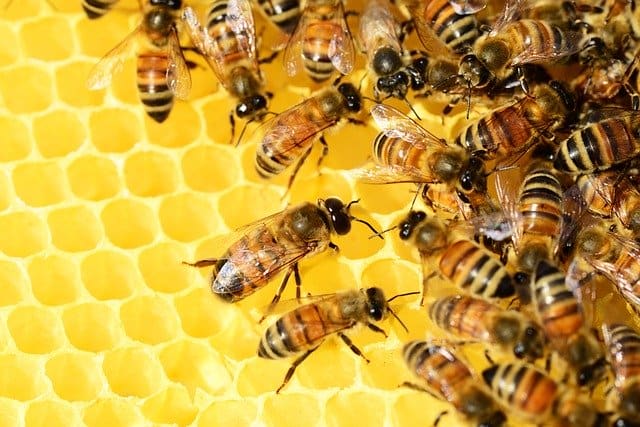The social distancing caused by Covid-19 is somewhat unusual and difficult for humans to carry, but it is common for honey bees. To prevent the spread of a virus, members of a colony quickly adopt strategies to avoid contact with infected members.
This has been evidenced by a scientific study that has observed a colony infected with the deadly Israeli acute paralysis virus (IAPV). Bees avoid touching and feeding their sick mates.
What the scientists failed to answer was how this deadly virus could be spread so much if the colonies were so effective in taking containment measures. IAPV is a deadly virus that is ravaging the bee colonies of the United States.
Discover its ability to spread
To try to answer this puzzle, Adam Dolezal, an insect physiologist at the University of Illinois, Urbana-Champaign (UIUC) who studies the IAPV virus, teamed up with UIUC computer scientist Tim Gernat. They developed an automated system to monitor the behaviour of bees. They monitored 900 bees from three different colonies and tracked them with a camera. They also infected between 90 and 150 bees in each colony with IAPV.
After five days of recordings, the team discovered that healthy bees avoided contact with infected bees. Trophallaxis (the transfer of food or other fluids among members of a community through mouth-to-mouth or anus-to-mouth feeding) was reduced to less than half. “But it wasn’t for lack of trying: the sick bees moved around the colony more than other bees, probably looking for someone to feed them,” says Dolezal.
But, in addition to the distancing, the recordings revealed that the virus seems to have an alarming counterattack.
In the study, published in the PNAS journal, they report that when sick bees try to enter a colony other than their own, they better violate the safety of guard bees. That has led scientists to speculate that the virus has developed a way to spread.
Like Trojan horses
Honey bees are particularly vulnerable to infectious diseases: they live in crowded conditions and touch each other all the time. Furthermore, their immune systems are weak compared to other insects. Instead, they rely on hygienic behaviours, such as grooming or the removal of diseased larvae.
When Dolezal and Gernat placed IAPV-infected bees and placed them outside another colony, the guards let in about 30% of them, compared to about 15% of healthy foreign bees.
“It is worrying to discover this level of movement of the virus,” says Dolezal.
Researchers are not sure why the IAPV virus can trick hive guard bees in this way, but it may be because it alters the abundance of various cuticular hydrocarbons, which differed between sick and healthy groups. For example, they discovered that IAPV infection produces lower levels of octacosanol, which is associated with greater acceptance by other bees.
Infected bees were also more submissive when guards challenged them and were more likely to offer them food, and those behaviours can also help them spread the disease.
If IAPV aids in the spread of these other pathogens, that could be a big problem for beekeepers clustering colonies in one place for more productivity. It is very little they can do if they suspect infection with this virus
The IAPV virus is not the only problem that these Trojan bees can bring. Newcomers may also carry the Varroa mite, which has decimated bee populations worldwide.
“If IAPV aids in the spread of these other pathogens, that could be a big problem for beekeepers clustering colonies in one place for more productivity. It is very little they can do if they suspect infection with this virus,” says Dolezal.
